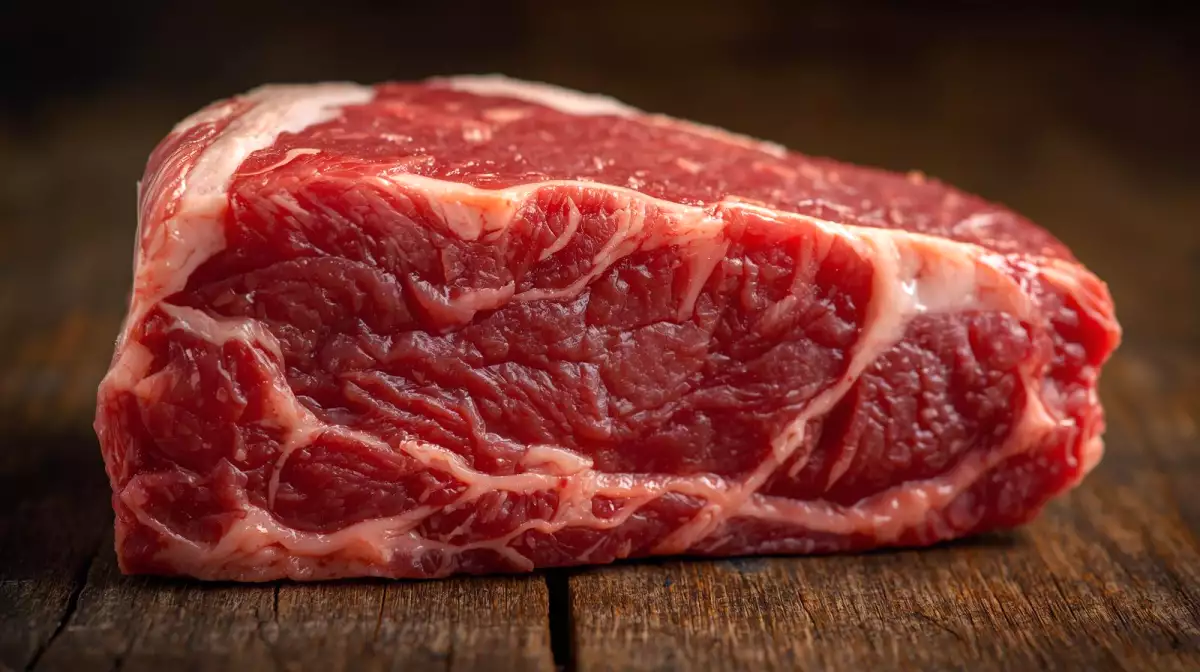Behind the rare steaks and viral promises: what science REALLY says about the carnivorous diet

You've seen this trend on the networks: eat exclusively meat, banish vegetables, fruit, even cereals. The famous "carnivore" diet promises mental clarity, rapid weight loss and raw energy. But behind the buzz, what does science have to say? Here, we take a look at the diet, its promises, its risks and the facts you need to know - all in the friendly tone of a friend who explains things simply.
What is the carnivorous diet?
This diet is defined by the exclusive or near-exclusive consumption of foods of animal origin: red meat, poultry, fish, eggs, sometimes dairy products. As much as possible, more (or very little) fruit, vegetables, grains, and legumes are consumed.
Followers adopt it for a variety of reasons: to simplify the diet, reduce digestive problems, boost energy or performance. But as always, what's attractive in the short term needs to be analyzed in the medium and long term.
Our strengths
Abundant protein: meat + eggs provide a rich supply of essential amino acids, useful for preserving or building muscle mass.
A very low-carb diet can lead to ketosis (the body burns more fat than sugar): some people report better appetite control, weight loss and mental clarity.
For some people, eliminating symptomatic "vegetables" (e.g. fragile intestine) may reduce certain digestive discomforts - but this is individual.
But there are proven risks you shouldn't ignore
Lack of fiber & microbiota effects
By banishing fruits, vegetables and legumes, this diet eliminates virtually all dietary fiber. Fiber is a pillar of good health: it promotes healthy intestinal flora, helps regulate transit, and high fiber consumption is associated with a reduced risk of cancer, diabetes and cardiovascular disease.
A less diverse microbiota can lead to increased vulnerability to plant foods when reintroduced, or to increased intestinal stress.
Lipid profile and cardiovascular risk
Meat, particularly red meat, is often rich in saturated fats. A high intake of red meat has been associated with an increased risk of cardiovascular disease: for example, a 2021 study of 180,000 participants showed a 20% increase in cardiovascular disease and a 53% increase in coronary heart disease.
Another identified mechanism is the TMAO molecule (produced by the microbiota from certain components of red meat): high levels are correlated with inflammation and hardening of the arteries.
So, if you follow a strict carnivorous diet, you're potentially exposing yourself to adverse effects on the heart and arteries.
Micronutrient deficiencies
The absence of plant foods means the exclusion of certain essential micronutrients: vitamin C, manganese, polyphenols, numerous fibers and certain antioxidants. Some sources also point to possible disturbances of thyroid function, fertility or liver function when this type of diet is followed for a long time.
Nutritional facts and figures
- Red meat: typically around 20-22 g of protein per 100 g, but also 10-15 g of fat (including a significant percentage of saturated fat).
- Recommended fiber intake for an adult: around 25-30 g per day. A purely carnivorous diet can provide close to 0 g.
- Cardiovascular risk: +20% cardiovascular disease and +53% coronary heart disease associated with high red meat consumption in this 2021 study of 180,000 people.
These figures show that while it may "feel good" in the first few weeks, the long-term effects may be less positive, or at least less well documented.
Is everything negative? No. But compromise is key
Often, "all-meat" is pitted against "vegetarian/vegan". In reality, the data suggest that moderation and dietary diversity are the safest.
For example, incorporating lean meats and fish and combining them with a Mediterranean-style diet seems far less risky than a strict carnivorous diet.
Here's what to remember:
- Don't vilify meat, but don't make it the sole focus of your diet.
- Conserve plant-based products rich in fiber and antioxidants to preserve intestinal health, lipid metabolism and overall balance.
- If you adopt a restrictive diet, follow up with your doctor to check lipid levels, liver function and microbiota, if possible.
Conclusion
So, should you adopt the carnivorous diet? If you're looking for a simplified eating routine, have no history of cardiovascular or digestive problems, and are rigorous about following it... you could test it in the short term. But emphasize the word "test". Long-term data do not support the idea that "eating only meat" is a healthy choice.
On the other hand, as a permanent dietary pattern, this diet has its warning signs: lack of fiber, increased cardio risk, potential micronutritional imbalance. You risk neglecting what your diet excludes as much as what it contains!
 Adèle Peyches
Adèle Peyches
Comments